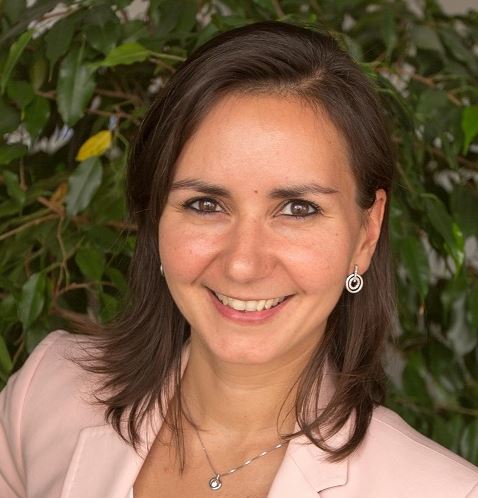Testimony of Céline, her CPIM certification
For Céline, a biochemist and biotech engineer, Supply Chain was not initially the field that naturally imposed to her. But all it took was one APS (Advanced Planning System) project, which she had been commissioned to carry out on completion of her studies. It was at a manufacturer of natural ingredients for the food, nutraceutical, pharmaceutical and cosmetics industries that she first encountered the world of the supply chain. Céline was put in charge of the new APS for planning and optimizing supplies for multi-site flows and production. She quickly developed a passion for Supply Chain and joined ALOER in 2014.

Recently CPIM certified, Céline talks about her experience and the different stages of her certification.
Why choose CPIM certification rather than DDMRP*?
Céline ” The choice was made very quickly. Our manager, Etienne GEORGES, gave me the opportunity to follow a course that is internationally recognized in the world of supply chain management. Being CPIM certified (Certified in Production and Inventory Management) has given me a certain expertise in best practices in operations management. The training is very comprehensive. It covers all areas of supply chain, flow management and global corporate operations. In addition to the experience in the field that I’ve been developing for over 5 years, this international certification is also the recognition of my expertise by an official body. CPIM certification is a differentiating criterion for a supply chain consultant. ”
The CPIM certification “route” is a long one. How have you spent the last few months between your international assignments and the revisions required by this training course?
Céline ” When undertaking this training, you need to be fully aware of the commitment it requires. The CPIM is a long, intense course. In addition to its dense content, it must be validated by 5 exams. Taking it in parallel with a professional activity requires a certain amount of organization. And I insist, a strong commitment. Dedicating regular time to training is THE key! ”
Aside from best practices in flow management and operations management, isn’t CPIM training too theoretical?
Céline ” The CPIM certification provides an overview of the main Supply Chain concepts. The course covers the challenges and main processes of Supply Chain Management. Of course, it also covers methods and tools for planning and managing flows. It’s true that these concepts are presented in a theoretical way. However, our customers’ experience enables us to adapt and apply them quickly. ALOER customers are also looking for access to supply chain best practices based on a globally recognized benchmark. ”
Have you noticed an improvement in your skills and are you already applying the principles of CPIM in your role as a consultant?
Céline ” Absolutely. This certification has enabled me to better understand the framework and challenges of customer assignments, and thus to better meet their expectations. ”
You’re a newly-certified CPIM. Can you share a few tips and tricks with future CPIM graduates?
Céline ” I would simply say two words to them: regularity and perseverance! This internationally recognized certification is very demanding, but also very rewarding. ”
Thanks Céline!
* DDMRP for Demand Driven Material Requirements Planning is a planning and execution technique for industry and distribution.
Find the Supply Chain, Lean, Project Management and IS expertise training catalog
